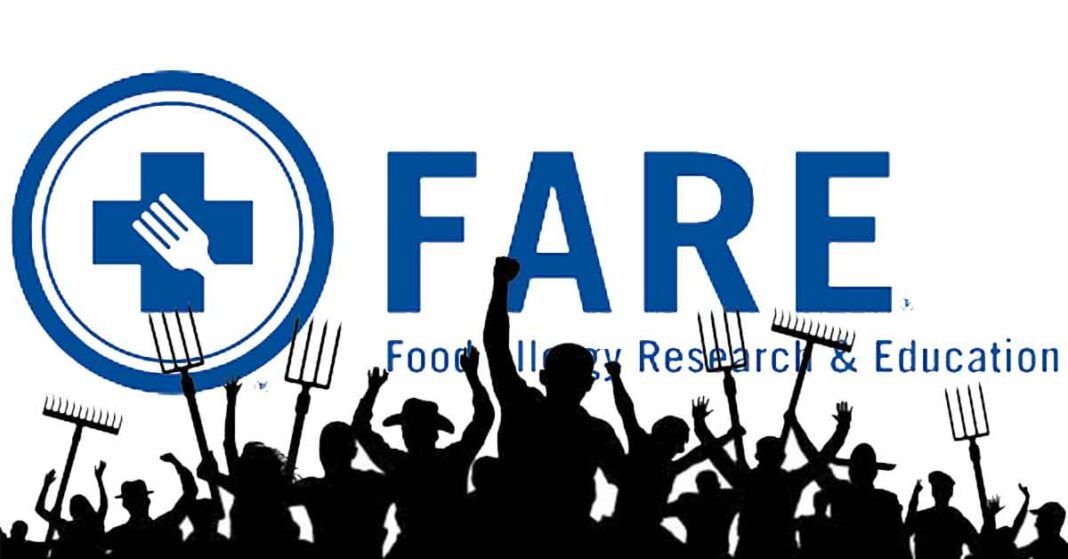A hastily scheduled FARE Town Hall was held yesterday, during which CEO Dr Sung Poblete defended the organization’s opposition to legislation vital to the food allergy community. Not one of the 100-plus participants voiced support for FARE’s decision, while many expressed their frustration, myself included. [My apologies to all who participated for losing my cool.]
California’s SB 68 — which would mandate restaurants to provide ingredient lists for each dish on their menus — is not without flaws, but it would provide the CA food allergy community with vital information that EU consumers have enjoyed for years. Furthermore, the legislation would serve as an excellent model for other states.
Dr Poblete gave a number of reasons why FARE took the preemptive and incendiary step of actively opposing the legislation: (1) they don’t think it can pass, (2) they don’t think it can be implemented by small businesses, (3) they argue we should be taking advantage of more responsive — read “electronic” — means of keeping the allergen information up-to-date, et al.
None of those reasons pass the smell test. If the legislation doesn’t pass, it can be amended and reintroduced to address shortcomings like many bills FARE has sponsored in the past; Brian Hom, who lost his son BJ in 2008 to anaphylaxis and runs two Vitality Bowls cafes in San Francisco, assured us that small restaurateurs will be able to comply; and electronic menus do not ensure ingredient information will be kept up to date any better than printed menus and PDFs.
During the call, Dr Poblete repeatedly advocated for unity within the food allergy community despite taking action that will undoubtedly undermine the grassroots bill’s prospects for success, which Addie and Robyn Lao et al have been working tirelessly to advance.
FARE receives the lion’s share of non-profit donations—millions of dollars each year—with the expectation that it will represent the interests of the food allergy community. In this instance, it has bitten the hand that feeds it by opposing legislation that every other food allergy organization that has taken a stance has endorsed.
I’m concerned because, in recent years, I have come to see three major food allergy non-profits as critical driving forces for the community:
- The Food Allergy Fund for funding research toward treatments and a cure;
- The Food Allergy and Anaphylaxis Connection Team (FAACT) for their work in food allergy education and advocacy;
- FARE for promoting legislative issues.
Now, I’m not so sure.
Based on the actions Dr Poblete has taken during her tenure, I’m convinced FARE has much greater aspirations than simply serving the food allergy community.
By expanding its reach into retail through the promotion of an app that endangers food allergy consumers and by inserting itself into the food service industry to act as the deal-maker and arbiter by actively opposing vital legislation, FARE appears much more like an expansive corporate entity than a non-profit.
I urge Dr Poblete to turn the ship around before it collides with the iceberg it is approaching. We need FARE to return to its previous role: advocating for us.
Dave Bloom
CEO, SnackSafely.com





